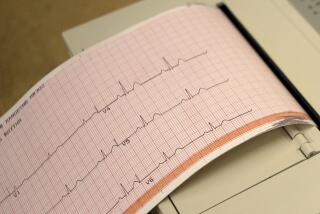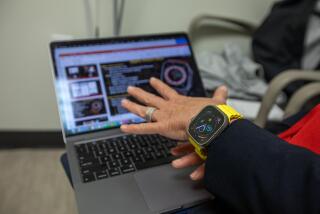Technology and Pain
- Share via
As a surgeon and, after 22 years of practice a candidate for the title of “older physician,” I would like to respond to Krieger’s diatribe against technological medicine. He complains at great length about the inability of a university hospital to diagnose his ruptured appendix in spite of (or because of) an intensive series of high-tech studies. I would like to introduce this young man to two of my patients.
In 1972 I operated upon a young woman with “typical” symptoms of gallbladder disease. She was allergic to X-ray dye and the ultrasound and CAT scan machines had not yet been invented. We operated on the basis of the “probable cause” Krieger is so fond of; her gallbladder was normal. So what, you say. It happened that this young woman had a propensity to form adhesions and she required two more operations in the next 12 months for bowel obstruction. She may have had many more since. High technology as we now know it would have saved her an operation . . . three operations and maybe more.
Recently, I operated on a young woman for “classical symptoms” of appendicitis. She did not have appendicitis and after further investigation we found the cause to be an abnormal right kidney due to a birth defect. The government insurance program for military dependents will not pay for her surgery because she did not have appendicitis. Therefore, it was “unnecessary surgery.” Never mind that every textbook says that some normal appendixes must be removed because of the inability to make this diagnosis with certainty before surgery.
If Krieger ever gets to medical school he may learn just how difficult the diagnosis of appendicitis can be in spite of (not because of) the best technology we have. I don’t think he’ll ever get there, however. He sounds like lawyer material to me.
MICHAEL T. KENNEDY, MD
Past President
Orange County Medical Assn.






